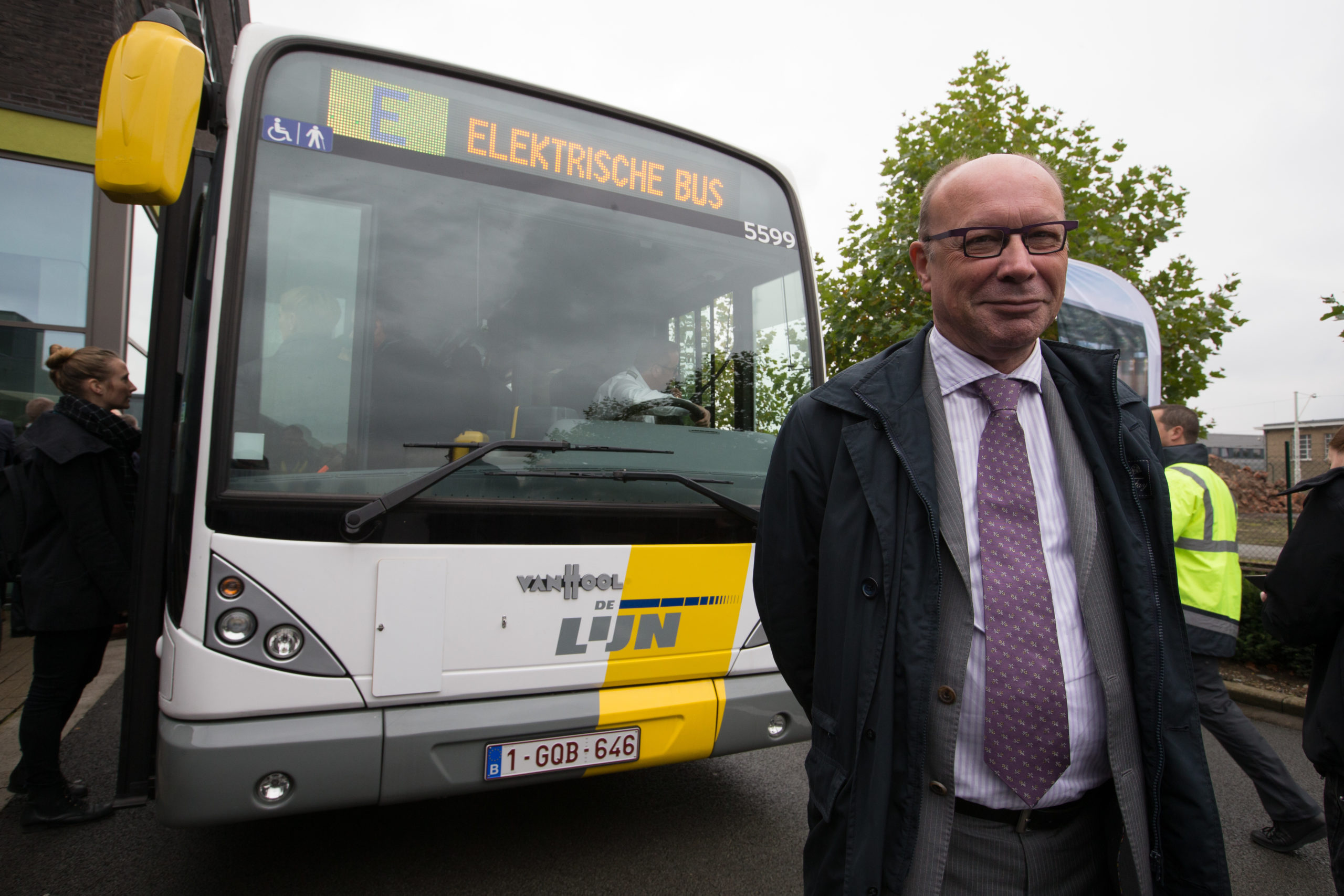
De Lijn to redo its e-bus tender homework (update)

De Lijn’s then Director-General Roger Kesteloot pictured during the presentation of the first electric Van Hool buses with wireless inductive charging in Bruges in 2015 /Belga
This week Flemish Mobility Minister Lydia Peeters (Open Vld) urged public bus company De Lijn to redo its homework for the tender for 200 (o


Comments
Ready to join the conversation?
You must be an active subscriber to leave a comment.
Subscribe Today